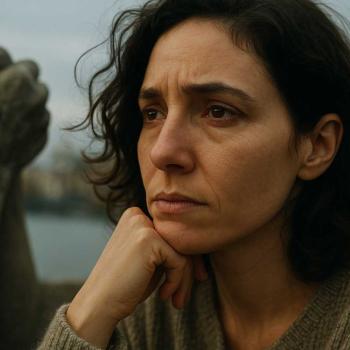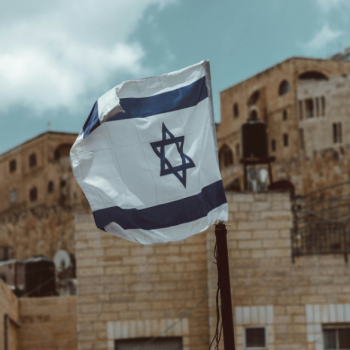Remember, the only God we know is the God of story, whether it be our story or some other story. In all cases the God of story supports and sanctions the story in which that God appears. And because the things these Gods support and sanction become the determining factors in the way billions of human beings live their lives, Gods matter. But in the case of Torah, God isn’t a finished character. As we grow, God grows. That is to say as we understand more about the nature of reality our reading of Torah changes so that God reflects what we know.
We Jews are taught that we are co–creators with God. That is to say God creates the raw material for a peaceful and abundant world, and we humans turn that raw potential into actual peace and abundance. A literal reading of this teaching has motivated Jews for thousands of years. I don’t read it literally.
For me the teaching is this: we Jews co–create God in our image and after our likeness. If our self–image is fearful, our God will be frightening. If our self–image is violent, our God will be malevolent. If our self–image is one of “us against them,” our God will be for “us” and against “them,” and encourage us to do unto “them” whatever it necessary to take care of “us.” If our self–image is obsessed with death, our God will demand the death of others, animals and humans.
But, if our self–image is loving our God will be loving. If our–self image is peaceful, our God will be peace–making. If our self–image is one of “us and them” our God will be for all and the well–being of all. If our self–image is life–affirming our God will be life–affirming.
The God of our narratives mirrors the minds and hearts of the people that cherish that narrative. This is no less true of Torah than any other narrative. What is also true of Torah is that it is not a fixed narrative. Judaism is the art of reinventing Torah, and in so doing we reinvent what it is to be God, a Jew, and a human being.















